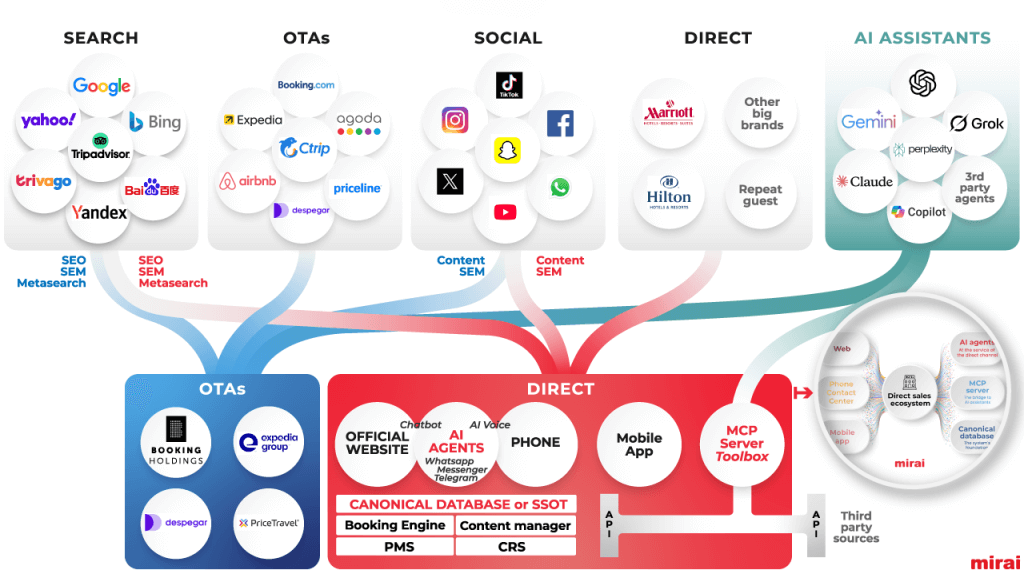
In the hotel industry, where operational costs and rental expenses can significantly impact profitability, traditional financial metrics often fall short in giving a true picture of a hotel’s performance. This is where EBITDAR (Earnings Before Interest, Taxes, Depreciation, Amortization, and Restructuring or Rent costs) comes into play.
NB: This is an article from Catala Consulting
Subscribe to our weekly newsletter and stay up to date
We believe that understanding and leveraging EBITDAR can provide valuable insights into your hotel’s financial health and help you make more informed decisions.
What is EBITDAR?
EBITDAR is a financial metric that stands for Earnings Before Interest, Taxes, Depreciation, Amortization, and Restructuring or Rent costs. It’s particularly useful for industries like hospitality, where rental or lease expenses can vary widely. By excluding these costs, EBITDAR offers a clearer view of a hotel’s operational performance, allowing for better comparison across properties with different lease arrangements.
Why Should Hotels Use EBITDAR?
Hotels often face substantial rental or lease costs, which can distort the true picture of their profitability when using metrics like EBITDA. EBITDAR eliminates this distortion by excluding rental and restructuring expenses, providing a more accurate measure of operational efficiency. This makes it easier to benchmark performance against competitors and identify areas for improvement.
For hoteliers, EBITDAR is a valuable tool that can assist in:
- Making informed operational decisions: By focusing on core earnings, EBITDAR helps identify inefficiencies and areas for cost-saving.
- Benchmarking performance: EBITDAR allows for fair comparisons between properties, regardless of their rental or lease agreements.
- Improving financial transparency: Investors and stakeholders can gain a clearer understanding of the hotel’s financial health without the variability introduced by rent costs.
EBITDAR vs. EBITDA: What’s the Difference?
While both EBITDAR and EBITDA measure a company’s earnings before interest, taxes, depreciation, and amortization, EBITDAR goes a step further by excluding restructuring and rent costs. This makes it particularly useful for comparing hotels with different lease structures or those undergoing significant operational changes. In essence, EBITDAR provides a more refined view of a hotel’s core profitability, free from the influence of external financial obligations.
How to Calculate EBITDAR
The formula for EBITDAR is straightforward:
EBITDAR = EBITDA + Restructuring/Rent Costs
To break it down:
- Start with EBITDA, which is calculated by subtracting operating expenses from revenue, then adding back depreciation and amortization.
- Add the total restructuring and rent costs to EBITDA to arrive at EBITDAR.
For example, if your hotel has an EBITDA of $1 million, with additional rent costs of $70,000, your EBITDAR would be $1.07 million.
When to Use EBITDAR
EBITDAR is most effective for hotels with significant rental or lease costs, or those undergoing restructuring. It’s also particularly useful for large hotel chains, where comparing the performance of properties with different lease agreements can be challenging. By focusing on core operational earnings, EBITDAR enables more accurate comparisons and better decision-making.
The Benefits of Using EBITDAR
Utilizing EBITDAR as part of your financial analysis offers several advantages:
- Accurate Financial Performance: EBITDAR gives a more accurate representation of your hotel’s earnings by excluding rental and lease expenses, offering a clearer view of profitability.
- Fair Comparison: Benchmark your hotel against competitors or other properties within your chain without the distortion of varying rental costs.
- Operational Focus: This metric highlights your hotel’s core operations, helping management to streamline processes and improve profitability.
- Asset Valuation: EBITDAR can play a crucial role in determining the value of a hotel, especially during sales or acquisitions.
- Management Assessment: By focusing on core operations, EBITDAR allows for a clearer evaluation of management effectiveness.
- Risk Identification: Highlight potential financial risks and make informed decisions about future investments or operational changes.
Conclusion
EBITDAR is a powerful tool that offers hoteliers a clearer perspective on their property’s financial health. By excluding variable costs like rent, it provides a more accurate measure of operational efficiency and profitability.




